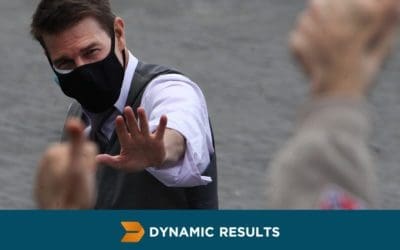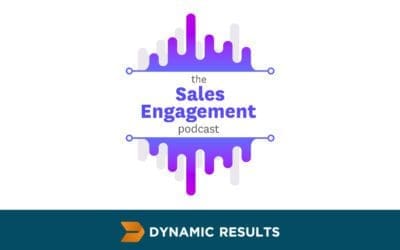Henry J. Evans, author of the best-selling leadership development book “Winning With Accountability: The Secret Language of High-Performing Organizations“ (2008), offers a step-by-step guide to creating an accountability culture that boosts performance. Used by businesses from multinationals to educational institutions, his method is explored in this interview.
Elevating Accountability
Q: Everyone is accountable for their job. How does your concept go beyond that?
“Great question! We provide a simple, accessible, easy to understand framework for making and requesting accountable commitments. By having a shared language, we decrease ambiguity and increase understanding in the workplace.”
Trust and Mistakes
Q: Accountability requires trust. What happens when someone underperforms?
“We wrote about this in the book. Our next book will address this in more detail and in short: everyone makes mistakes. This should be expected. We feel that people who make redundant mistakes should be treated differently than those who make ‘new’ mistakes. Sometimes when an organization is looking at an individual with consistently poor performance, the organization may wish to ask itself ‘how many poor performers do we have?’ before it starts to drop a hammer on the individual in question. In other words, if you have too high a percentage of ‘poor performers’ within an organization, division, or workgroup, you may want to look at your hiring and training processes before you start singling someone out for corrective action. Additionally, you may have a performance problem with one of your leaders if you have a disproportionate number of low performers on one specific leader’s team.
For those who make redundant mistakes and don’t express a willingness to change, you may want to help them exit the organization. We believe that if you have sound assessment and hiring processes on the front end, this is usually not the case. Our Accountability Method provides a framework for setting and reviewing expectations on the individual and team levels.”
Specificity in Communication
Q: Your method emphasizes clear communication. How can we improve our specificity?
“One best practice we recommend is to work through your last few days’ e-mails in your ‘sent items’ and ‘clean them up.’ This means that for every request or promise you’ve made in the last few days, you re-write people and fill in the pieces of our Accountability Puzzle that were missing from your original request or promise. Lastly, contract with your team members so that it is okay for people to check in with one another on the current state of particular commitments. This sounds like ‘Hey Rajiv, I know you are committed to making it safe for others to check in with you. How is it going with your financial projections for the Western half of the United States? I know they are due tomorrow at 3 p.m.’”
Choosing an Accountability Partner
Q: Accountability partners are crucial. What qualities should we look for?
“First, your accountability partner should not be your boss or direct report. Your accountability partners should be:
- At a peer level (or outside of the organization).
- Someone who has your best interests at heart.
- Someone you trust.
- Someone who is assertive enough to call [nonsense] on you when you are dancing around an issue.”
Overcoming Lack of Planning
Q: Many tasks lack clear expectations. How do we address this?
“I just left a client organization yesterday after facilitating a day of strategic planning and implementation with them. They keep our Accountability Posters on their conference and meeting room walls for the express purpose of checking in the ‘quality’ of commitments being made in each meeting. They also allow time at the end of each meeting to address action items and lastly, they start each meeting with a review of the action items identified in their previous meeting. We have other best practices as well: try embedding the four pieces of our accountability puzzle in your requests and commitments.”
Self-Reflection and Accountability
Q: Your book emphasizes self-reflection for a strong accountability culture. How does this work?
“Now for me, this is a deep question. The answer certainly transcends our method and in my opinion, involves some best practices for life. A lot of the work we do in client organizations is getting all members of a team to self-reflect before they begin to externalize the root cause of the challenges they are experiencing. We believe that we have the greatest impact on organizations that allow us to catalyze this type of change. In other words, self-reflection is more powerful as a culture than it is at the level of one (or a few) individual(s) when working towards organizational change.”
S.M.A.R.T.E.R. Goals
Q: You expand on S.M.A.R.T. goals with “Ethical” and “Recorded.” Why?
“We spend a lot of time on this in our workshops. In short, if you want people to do their best work, what you are asking them to do must be aligned well with the values they thought they were signing up for when they first joined your organization. For example: If all I value is money and my ethics allow me to lie in order to earn it, I will fit very well into a project team which is tasked with making a profit ‘at any cost.’ In my experience, most people don’t fit this description.
‘Recorded’ simply means that accountability is created when someone else knows about your commitment.”
Timelines vs. Deadlines
Q: Timelines sound less stressful than deadlines. How are they just as effective?
“We don’t mean to convey that one is more important than the other. We do mean to convey that they are different. In school, most of us were taught about deadlines, which is ‘when the work is due’ and we received very little training on timelines, which is ‘when the work gets done.’ We recommend that clients manage their calendars based on what they have already identified as ‘most important.’ We have a process for doing this with and for clients in our Executive Coaching practice.”
Delivering Difficult Feedback
Q: How can we be truthful about accountability concerns with superiors?
“You should have some trepidation when going ‘upstream.’ If dealing with a difficult boss, we recommend using a permissive approach. ‘Hey boss, if I had something to share that might be difficult for you to hear and from my perspective was important for you to hear, when and where would you want me to share it?’ We warn you, if your boss tells you they don’t want to hear it, believe them.”
Specificity with Accountability Partners
Q: Your “Glossary of Failure” sounds helpful. How can we ensure specificity with accountability partners?
“That’s nice of you to say. Tell people you are working on being more specific and invite them to ask you for more specific information when they hear you being ambiguous. When they do check in, thank them.”
Managing Workload Distribution
Q: How do you avoid giving too many tasks to your “go to” person?
“Having a regularly occurring and reciprocal feedback loop. An introvert and/or people with certain cultural backgrounds will continue to accept requests from you even when it is sinking their ship with too heavy a load. You need to be checking in (looking people in the eyes) when you are monitoring their workloads. Lastly, we have a theory about what percentage of the time people should be doing what they are best at. The number is 80% and we will write much more about this in our next book.”
Henry J. Evans is the founder and Managing Partner for Dynamic Results, LLC, which provides coaching and consulting solutions to companies and individuals. He provides performance coaching to independent executives, as well as those in national organizations, helping each achieve their desired goals.
—
Join the over 100,000 Leaders Who Have Won with Accountability! Winning With Accountability™, a best-selling leadership development book, provides the tools you need to make accountability a reality in your organization. Don’t miss out – Order Your Copy Today!



